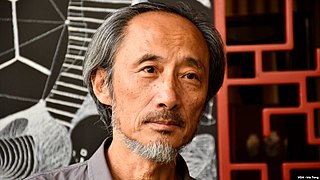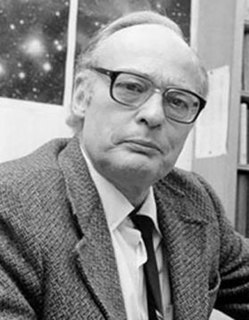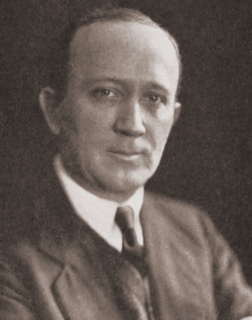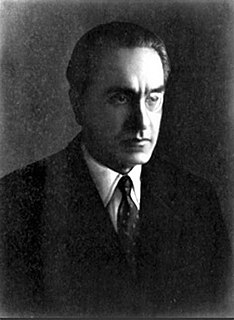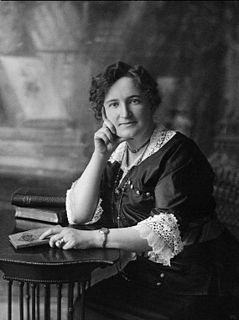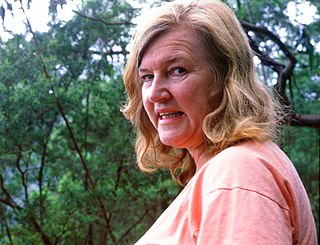Top 984 Nicomachean Ethics Quotes & Sayings - Page 17
Explore popular Nicomachean Ethics quotes.
Last updated on December 22, 2024.
Before the counter-culture revolutionary Li Lian was executed in 1971 for criticising the Cultural Revolution, pour policemen pushed her face against the window of a truck, lifted her shirt and cut out her kidneys with a surgical knife,’ Mau Sen said, his face stony and white. ‘I think that removing the organs of convicts while they are still alive is too much. It completely contravenes medical ethics.’ ‘This is a dissection class, not a political meeting,’ Sun Chunlin said.
Human beings of all societies in all periods of history believe that their ideas on the nature of the real world are the most secure, and that their ideas on religion, ethics and justice are the most enlightened. Like us, they think that final knowledge is at last within reach. Like us, they pity the people in earlier ages for not knowing the true facts. Unfailingly, human beings pity their ancestors for being so ignorant and forget that their descendants will pity them for the same reason.
The lowest standards of ethics of which a right-thinking man can possibly conceive is taught to the common soldier whose trade is to shoot his fellow men. In youth he may have learned the command, 'Thou shalt not kill,' but the ruler takes the boy just as he enters manhood and teaches him that his highest duty is to shoot a bullet through his neighbor's heart - and this, unmoved by passion or feeling or hatred, and without the least regard to right or wrong, but simply because his ruler gives the word.
I care not for the theoretical symmetry and impregnable logic of your moral code, I care not for the hoary respectability and traditional mysticisms of your theological institutions, I care not for the beauty and solemnity of your rituals and religious ceremonies, I care not even for the reasonableness and unimpeachable fairness of your social ethics,--if it does not turn out better, nobler, truer, men and women,--if it does not add to the world's stock of valuable souls,--if it does not give us a sounder, healthier, more reliable product from this great factory of men--I will have none of it.
A US Department of Education; implementation of a scientific materialist philosophy; studies, being cleansed of religious, patriotic and other features of the bourgeois ideology; students taught on the basis of Marxian dialectical materialism, internationalism and general ethics of a new socialist society; present obsolete methods of teaching will be superseded by a scientific pedagogy. The whole basis and organization of capitalist science will be revolutionized. Science will become materialistic, hence truly scientific. God will be banished from the laboratories as well as from the schools.
Sufis have always been those that have tried to purify the ethics of Islam and society. And they don't have their hands cut off from the external action at all. For example, the bazaar in which the Sufis were very strong always dominated economic life in Islamic world. They could give a much more sane and Islamic form of activity when the economic life of Islam moved out of the bazaar to new parts of Islamic cities with modernized Muslims, who took it in another light and it became very, very anti Islamic, and much against many of the most profound practices of Islamic societies.
The difference between magic and meditation methods is the difference between drugs and diet—medicines will do swiftly what diet can only effect slowly, and in critical cases there is no time to wait for the slow processes of dietetics, so it must be either medicines or nothing. Nevertheless, drugs are no substitute for right diet and wholesome regime, and although magic enables a speedy and potent result to be attained, is is only by means of right understanding and right ethics that the position which has been won can be held.
We all faced painful ethical challenges before we even knew how to spell our names. There were tough choices. Tradeoffs. Confusing signals regarding how to live one's life. And here we are now, today, still struggling. Still trying to sort things out. Still trying to work our way through life effectively. About the only thing that has changed is the scope of the problem. There's more at stake now. And we're in a position, as grownups, to do a lot more-good or bad-for ourselves, our organization, our world. But we still must wrestle with our imperfect ethics.
In order to live, man must act; in order to act, he must make choices; in order to make choices, he must define a code of values; in order to define a code of values, he must know what he is and where he is – i.e. he must know his own nature (including his means of knowledge) and the nature of the universe in which he acts – i.e. he needs metaphysics, epistemology, ethics, which means: philosophy. He cannot escape from this need; his only alternative is whether the philosophy guiding him is to be chosen by his mind or by chance.
The true man of science will know nature better by his finer organization; he will smell, taste, see, hear, feel, better than other men. His will be a deeper and finer experience. We do not learn by inference and deduction and the application of mathematics to philosophy, but by direct intercourse and sympathy. It is with science as with ethics,--we cannot know truth by contrivance and method; the Baconian is as false as any other, and with all the helps of machinery and the arts, the most scientific will still be the healthiest and friendliest man, and possess a more perfect Indian wisdom.
There's a floating distraction in the contemporary world, life at a distance enabled by technology. I want people to commit at the level of their subjectivity. The idea of subjective commitment is at the core of ethics, something that divides the self from itself. I become an ethical self. I cannot meet that ideal, I cannot fulfill it, it divides me from myself and it makes me strive harder. This ideal subjective ethical drive is at the heart of an absolutely earnest, radical politics that insists that people will be able to engage with each other, and they're lifted from irony at that point.
It’s a revolution. But it’s the sort of revolution that no one will notice. It might get a little shadier. Buildings might function better. You might have less money to earn because your food is all around you and you don’t have any energy costs. Giant amounts of money might be freed up in society so that we can provide for ourselves better. So it’s a revolution. But permaculture is anti-political. There is no room for politicians or administrators or priests. And there are no laws either. The only ethics we obey are: care of the earth, care of people, and reinvestment in those ends.
In our concern for others, we worry less about ourselves. When we worry less about ourselves an experience of our own suffering is less intense. What does this tell us? Firstly, because our every action has a universal dimension, a potential impact on others' happiness, ethics are necessary as a means to ensure that we do not harm others. Secondly, it tells us that genuine happiness consists in those spiritual qualities of love, compassion, patience, tolerance and forgiveness and so on. For it is these which provide both for our happiness and others' happiness.
Man feels the urge to run up against the limits of language. Think for example of the astonishment that anything at all exists. This astonishment cannot be expressed in the form of a question, and there is also no answer whatsoever. Anything we might say is a priori bound to be nonsense. Nevertheless we do run up against the limits of language. Kierkegaard too saw that there is this running up against something, and he referred to it in a fairly similar way (as running up against paradox). This running up against the limits of language is ethics.
Prior to the advent of the civilization of the Third Estate (mercantilism, capitalism), the social ethics that was religiously sanctioned in the West consisted in realizing one’s being and in achieving one’s own perfection within the fixed parameters that one’s individual nature and the group to which one belonged clearly defined. Economic activity, work, and profit were justified only in the measure in which they were necessary for sustenance and to ensure the dignity of an existence conformed to one’s own estate, without the lower instinct of self-interest or profit coming first.
War proves nothing. To kill a man does not prove that he was in the wrong. Bloodletting cannot change men's spirits, neither can the evil of men's thoughts be driven out by blows. If I go to my neighbor's house, and break her furniture, and smash her pictures, and bind her children captive, it does not prove that I am fitter to live than she - yet according to ethics of nations it does. I have conquered her and she must pay me for my trouble; and her house and all that is left in it belongs to my heirs and successors, forever. That is war!
Fantasy is a literature particularly useful for embodying and examining the real difference between good and evil. In an America where our reality may seem degraded to posturing patriotism and self-righteous brutality, imaginative literature continues to question what heroism is, to examine the roots of power, and to offer moral alternatives. Imagination is the instrument of ethics. There are many metaphors besides battle, many choices besides war, and most ways of doing good do not, in fact, involve killing anybody. Fanstasy is good at thinking about those other ways.
The rejection of all abstract formalism. Materialism reminds every science of its real source: the world men transform. No science can, whether in its history or its object, grasp its own origins within itself or constitute itself as a closed world, exhaustively defined by internal rules. Materialism refers every science and every activity to the reality they depend on, even if this dependence is masked by a great many abstract mediations: mathematics as well as logic, aesthetics as well as ethics and politics.
The desirable virgin is sexy but not sexual. She's young, white, and skinny. She's a cheerleader, a babysitter; she's accessible and eager to please (remember those ethics of passivity!). She's never a woman of color. SHe's never a low-income girl or a fat girl. She's never disabled. "Virgin" is a designation for those who meet a certain standard of what women, especially young women, are supposed to look like. As for how these young women are supposed to act? A blank slate is best.
As for the ethics, law, and politics relationship, there has always been a tension for me as I try to keep them distinct while recognizing their interactions. A valuable contribution to my thinking there and elsewhere was Ellen Meiksins Wood's Mind and Politics, which reinforced for me the ways in which seemingly disparate philosophical endeavors were/are interconnected, and although I have tended to give a certain priority to ethical considerations as part of practical reasoning, I am reminded often enough that this position makes some contentious presumptions .
I'm not an aspiring rapper, I'm not a gang member, I'm not a dope dealer, I don't have multiple babies momma's. I am an American by choice, I am a son, I am a brother, I am a military service member, I am a man who has lost complete faith in the system, when the system betrayed, slandered, and libeled me. I lived a good life and though not a religious man I always stuck to my own personal code of ethics, ethos and always stuck to my shoreline and true North. I didn't need the US Navy to instill Honor, Courage, and Commitment in me but I thank them for re-enforcing it. It's in my DNA.
What good men most biologists are, the tenors of the scientific world - temperamental, moody, lecherous, loud-laughing, and healthy. Your true biologist will sing you a song as loud and off-key as will a blacksmith, for he knows that morals are too often diagnostic of prostatitis and stomach ulcers. Sometimes he may proliferate a little too much in all directions, but he is as easy to kill as any other organism, and meanwhile he is very good company, and at least he does not confuse a low hormone productivity with moral ethics.
Some of my understanding of what philosophy and ethics is has changed very slowly. One thing that has changed is this for quite a long time I bought-into the idea that philosophy is basically about arguments. I'm increasingly of the view that it isn't. The most interesting things in philosophy aren't arguments. The thing that I think is underestimated is what I call a form of attending. I think that philosophy is at least as much about carefully attending to things as it is about the structure of arguments.
To the extent that we hyper-separate ourselves from nature and reduce it conceptually in order to justify domination, we not only lose the ability to empathise and to see the non-human sphere in ethical terms, but also get a false sense of our own character and location that includes an illusory sense of autonomy. The failure to see the non-human domain in the richer terms appropriate to ethics licences supposedly ‘purely instrumental’ relationships that distort our perceptions and enframings, impoverish our relations and make us insensitive to dependencies and interconnections
